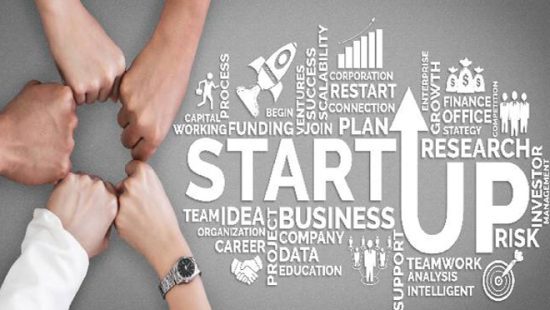From Jeff Bezos to Sara Blakely—and Latino leaders like Richard Montañez and Sofía Vergara—here’s what the most successful entrepreneurs want you to know when you’re building a business from the ground up.
Entrepreneurship has captured the imagination—and ambition—of a new generation of Latinos. Today, launching your own business is more than a way to earn a living; it’s a statement of identity, purpose, and vision. Across the United States and Latin America, Latino-founded small and midsize businesses are emerging as vital engines of innovation, job creation, and community wealth. They’re reshaping what personal and collective progress looks like.
But what truly separates a good idea from a durable, thriving enterprise? What do the world’s most successful founders—Latino and global—consistently recommend to people just getting started? Below are the five pieces of advice you’ll hear again and again from top entrepreneurs, reframed for the realities, strengths, and challenges of the Latino business community.
- Build a Real Business, Not a Fast One
Echoed by Warren Buffett, Daymond John, and many seasoned investors
The “get rich quick” myth has destroyed more dreams than actual failure. Nearly every iconic entrepreneur built slowly: with patience, discipline, and a long-term plan.
“Build something that solves a real problem—not something that only looks profitable on social media.” — Daymond John, founder of FUBU and investor on Shark Tank
If you’re a Latino entrepreneur, start by identifying a real, persistent need in your community or target market. Focus on value delivery, cash flow discipline, and repeat customers. The speed of your launch matters far less than the strength of your fundamentals.
Quick gut-check: If social media trends disappeared tomorrow, would your business still generate revenue? If the answer is no, you may be chasing attention—not building value.
- Design for Expansion: Create a Platform, Not Just a Product
Inspired by founders like Elon Musk and Cristina Junqueira (co-founder, Nubank)
Enduring companies rarely stay confined to a single offering. The strongest business models are built to branch, layer, and diversify.
Think of Uber: what began as ride-hailing evolved into food delivery, freight logistics, and local services. Amazon started with books, but its platform vision enabled e-commerce at scale, cloud computing, streaming media, and beyond. Nubank started with a no-fee credit card and expanded into a full digital financial platform serving millions across Latin America.
For Latino entrepreneurs, this mindset applies whether you’re tech-based or brick-and-mortar. A neighborhood taco concept can extend into packaged sauces, branded merch, cooking workshops, food trucks, or licensing deals. Ask early: What’s the second and third revenue stream this brand could own?
- Resilience Isn’t Optional—it’s the Core Skill
Lived by Oprah Winfrey, Richard Montañez, and countless Latino founders
Richard Montañez’s story—rising from janitor to the creative mind credited with Flamin’ Hot Cheetos—has become a cultural symbol for underdog grit. His message: loss, rejection, and being underestimated are not endpoints; they’re training grounds.
“You have to be willing to lose. And then keep going. Losing isn’t the end—it’s the beginning of something bigger.” — Richard Montañez
The entrepreneurial road is crowded with delays, cash crunches, bad hires, and failed experiments. What separates dreamers from builders is the ability to absorb setbacks, learn fast, and re-engage. Build support systems—mentors, peer founder circles, community capital networks—to help you stay in the game when it gets rough.
Founder drill: After every setback, write a one-page “What We Learned” memo. Turn pain into process.
- Study the Past to Anticipate the Future
Practiced by Jeff Bezos and Sofía Vergara
Breakthrough strategy often starts with pattern recognition. Jeff Bezos obsessively studied the history of retail, logistics, and consumer behavior to spot where the internet could transform buying habits. Sofía Vergara examined how legacy beauty and lifestyle brands ignored Latinas—and built brands that spoke directly to that underserved audience.
Markets leave clues. Industry history shows what customers repeatedly want, what they reject, and where incumbents fail to serve emerging demographics—like the fast-growing, upwardly mobile Latino consumer base.
Action steps:
- Read the last 10 years of industry trend reports (yes, really).
- Track demographic shifts—income growth, digital adoption, bilingual media consumption.
- Map where cultural identity intersects with unmet demand.
Use yesterday’s signals to build tomorrow’s advantage.
- Reinvent Relentlessly—or Get Replaced
Championed by Sara Blakely (Spanx) and business educator Carlos Muñoz
Markets shift. Platforms change. Costs spike. Consumer tastes evolve. The companies that survive are those that continually test, refresh, and reframe their value.
Sara Blakely grew Spanx from a single product into a global shapewear and apparel brand by listening to customers and expanding into new fits, fabrics, and categories. Meanwhile, Latin American business voices like Carlos Muñoz hammer home a similar truth: if you’re not evolving, someone else is positioning to take your market.
“If you’re not willing to change, be ready to be replaced.” — Carlos Muñoz
Practical reinvention loop:
- Quarterly: review product/market fit metrics.
- Twice yearly: test one adjacent offer.
- Annually: sunset what’s not working; scale what is.
To be a Latino entrepreneur today is to lead culturally, economically, and socially. You bring bilingual insight, cross-border networks, and community trust that many legacy brands lack. Pair that with disciplined execution, resilience, and strategic reinvention—and your business can scale impact as well as income.
You’re not alone on this path. Connect with other Latino founders, seek mentorship, and keep learning. Your next move could become the success story that inspires the generation after you.








